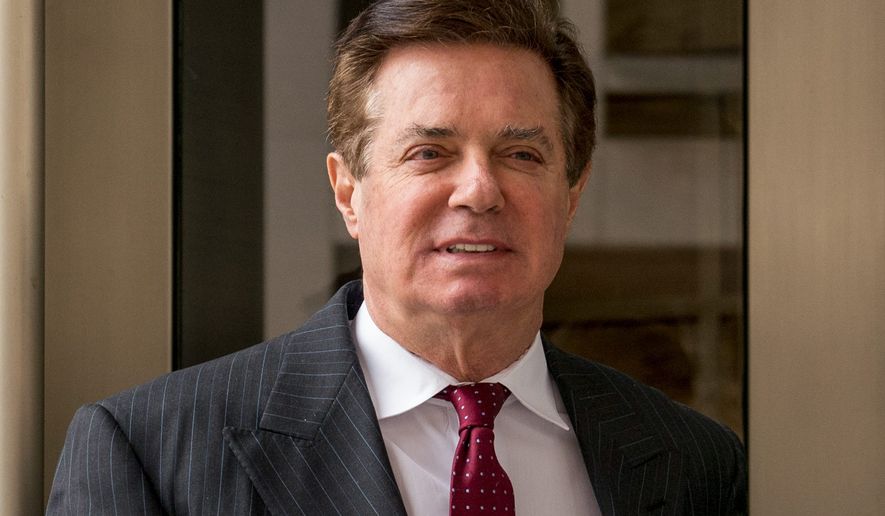Special counsel Robert Mueller hasn’t provided evidence to the federal judge overseeing the case of Paul Manafort that his confidant in Ukraine is a Russian spy or tied to its intelligence apparatus, according to a new court transcript.
One of the continuing narratives in the prosecution of Manafort is that he worked for more than a decade with a Russian spy — Konstantin Kilimnik, a Ukraine-born translator and political consultant.
Mr. Mueller has said in court documents that the FBI assesses Mr. Kilimnik as being tied to Russian intelligence. The news media has taken that description to link him to the Kremlin and thus evidence of possible election collusion with Manafort when he was President Trump’s campaign manager.
In a newly released transcript of a Feb. 13 hearing, U.S. District Judge Amy Berman Jackson said she hasn’t been provided the evidence. Legally, she said, it doesn’t matter if he is a spy because the appointment order to Mr. Mueller says to investigate “any links” of Trump associates and the Russian government.
“Whether Kilimnik is tied to Russian intelligence or he’s not, I think the specific representation by the Office of Special Counsel was that he had been, quote, ’assessed by the FBI, quote, to have a relationship with Russian intelligence,’ close quote,” Judge Jackson said at the hearing. “Whether that’s true, I have not been provided with the evidence that I would need to decide nor do I have to decide because it’s outside the scope of this hearing.”
As a young man, Mr. Kilimnik served as an army translator for Russian military intelligence. He denies he worked for the intelligence service after his discharge.
He was employed in Moscow for the International Republican Institute, a pro-Democracy group led by the late Sen. John McCain. He joined Manafort’s firm in Ukraine in 2005.
The point of the Feb. 13 hearing was to hear Judge Jackson explain her ruling that determined Manafort lied to the special counsel about his contacts with Mr. Kilimnik.
She said Manafort, interrogated as part of a plea deal, lied about a meeting he had with Mr. Kilimnik and a now-convicted business partner, Rick Gates, at a cigar bar in New York on Aug. 2, 2016.
A previously released but redacted court transcript shows Mr. Mueller has evidence from Gates that sanctions relief for Russia was discussed.
Kevin Downing, Manafort’s attorney, calls the collusion theory “nonsense,” and asserted that his client never lied.
Of Manafort’s testimony, Judge Jackson said: “Concessions come in dribs and drabs, only after it’s clear that the Office of Special Counsel already knew the answer. Again, it’s part of a pattern of requiring the Office of Special Counsel to pull teeth, withholding facts if he can get away with it.”
Now jailed in solitary confinement, Manafort is due to be sentenced in a federal court in Virginia next month after a jury convicted him of bank and tax fraud. He then will be sentenced by Judge Jackson.
He received millions in payments from the pro-Russia Party of Regions in Ukraine and hid the funds from U.S. tax collectors.
Under Mr. Mueller’s collusion pursuit, Mr. Kilimnik would be a key witness. He now lives in Russia, seemingly out of the prosecutors’ reach.
Mr. Mueller brought two charges of obstruction of justice against Mr. Kilimnik. The indictment says he conspired with Manafort to tamper with a witness. The issue related to Manafort in his not filing as a foreign agent with the Justice Department.
Mr. Downing received requested information from the prosecution that Mr. Kilimnik had an association with the U.S. Embassy in Kiev. The implication is that Mr. Kilimnik was an American asset.
• Rowan Scarborough can be reached at rscarborough@washingtontimes.com.




Please read our comment policy before commenting.